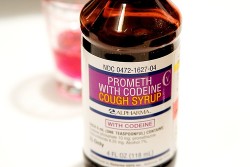Narcotics are drugs that are prohibited unless prescribed. Codeine is among the narcotic opiate drugs which are abused and which can be addicting.
Is Codeine Narcotic?
Opiate medications like codeine include drugs such as Percocet, Oxycodone, Vicodin and many others. Opiates are synthetic versions of opium which comes from the poppy plant. It has been used in it’s original form as anesthetic and as a treatment for many different ailments including pain relief for centuries. Codeine is an opiate medication that is prescribed for pain relief, and persistent coughs and diarrhea that can’t be controlled by over the counter medications.
Is Codeine Narcotic?
Opiate medications are sometimes referred to as narcotics. Codeine is a member of the opiate family and is considered to be a narcotic analgesic (pain reliever) and is classified as a Schedule II narcotic. Although typically our minds envision something illegal when we hear the word narcotic, it has no connection to illegal or illicit use of a drug.
Narcotic merely means that the drug is strictly prohibited without a prescription and when used other than prescribed or abused, it is in violation of strict governmental regulation. Classification of a drug as a narcotic can mean steeper punishment for drug violations as well. Codeine can actually carry steeper penalties then cocaine because cocaine is not classified as a narcotic drug.
Side Effects
The commonly experienced side effects of codeine are dizziness or extreme drowsiness, difficulty breathing and nausea and vomiting. Other side effects might include seizures, constipation, abdominal cramping and allergic reactions such as an itchy rash and hives. Allergic reactions can also lead to respiratory distress.
Abuse of Codeine

Codeine is an addictive narcotic.
Young people are using codeine cough syrup to get high. When taken in large quantities it can have similar psychedelic effects to ketamine and acid. If you ever hear someone talking about “syrup” or “leaning on syrup” they are referring to getting high with codeine cough syrup. It’s referred to as “leaning on syrup” because it makes someone so intoxicated that have to lean on something to hold themselves up.
It makes someone feel like they are detached from their body or floating. Parents and teachers should be aware of what this means if they hear it and be on the look out for any unusual behavior or indicators teens may be using the drug.
Is Codeine Addictive?
When used as directed codeine is safe for short term treatment however, codeine is a Schedule II narcotic and although it is not as strong as other opiates, it can be addictive if taken for extended periods of time or if it is abused and taken in large doses.
If someone stops taking codeine after an extended period of time symptoms of withdrawal can occur. According to NIDA, “once you get addicted, you can’t go into withdrawal and just cut it off and go cold turkey, you’re going to be very ill for a while”. Opiate withdrawal symptoms are certainly no walk in the park.
Professional treatment is recommended for people with opiate addictions as medications might be necessary to control or alleviate withdrawal symptoms and intense cravings to use the drug again.
the Take-Away
